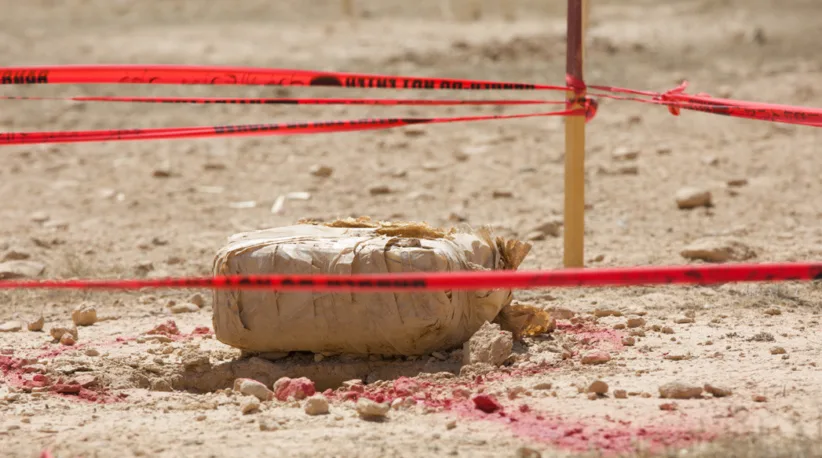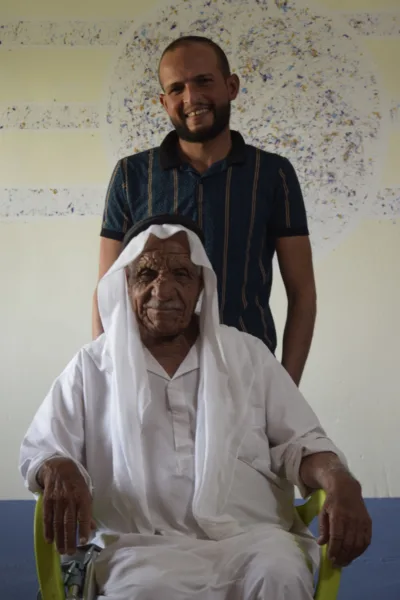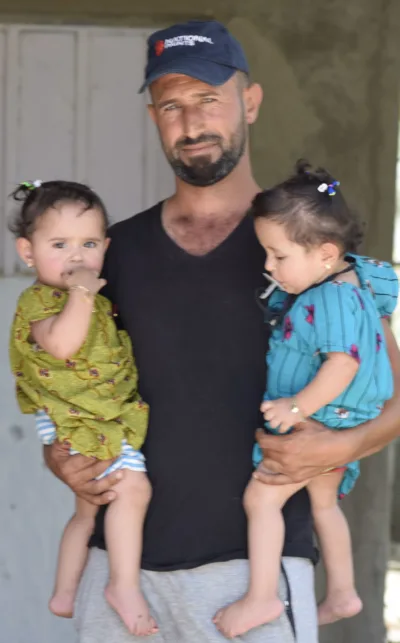NPA clears improvised minefields in Albuhayat village, Iraq
Albuhayat is a small village in the Haditha district of Anbar Governorate, Iraq. In December 2014 the village was taken by ISIS, forcing many residents to flee.

By Marijn van Broekhoven
Ayman Jamal, 26, was one of the people living in Albuhayat when ISIS took control. Ayman says the ISIS fighters arrived so suddenly that they did not have enough time to leave. Ayman and his family were worried that they would be a specific target for the extremist group as many of their family members and relatives were policemen.
Therefore, the day after ISIS came they decided to escape from the village. “We were scared when Daesh (ISIS) came to the village, we knew their first target would be the police and their families. It was dangerous to leave but it was even more dangerous to stay” Ayman explains.
Ayman and his family managed to escape the village by car through the desert, avoiding the main roads. Some other families fled the village on foot and by swimming across the river. Unfortunately, not everybody was able to get out on time. Some of the remaining police officers were taken by ISIS and their relatives later found their bodies in an area that was retaken by the Iraqi army a few months later.
After having spent more than three years in Haditha town, which was never taken by ISIS, Ayman and his family returned to their home in Albuhayat in 2018. Ayman says that when they first arrived they didn’t feel safe at all because they knew there were still many mines and improvised explosive devices in the area. But Ayman sometimes had to take his family’s sheep through the land, he recounts:

Some shepherds had made a small path, I tried not to go off from it because I was afraid to step on a mine, sometimes when I walked with the sheep I saw them in the ground
Albuhayat is one the villages that was heavily affected by explosive ordnance contamination. ISIS occupied the village in December 2014 and placed thousands of improvised mines in and around the village to defend their positions. In 2015 the area saw heavy fighting between ISIS and the advancing Iraqi army, as well as coalition airstrikes, resulting in additional contamination from unexploded ordnance. Since ISIS was pushed out of the area in 2015, there have been many accidents involving returning villagers.
In 2019, Ayman’s cousin, Sameer Fahada, 30, also returned to Albuhayat. Sameer says that he knows of several accidents with explosive ordnance that have occurred in the village. One of the incidents involved his cousin, Ahmed, who was a shepherd. Ahmed was killed when one of his sheep set of an improvised mine, he was 20 years old when he died in 2018.
Another incident, that occurred in 2020, involved two young girls (12 and 10 years old at the time) from the village. The girls had found a projectile and, curious as they were, picked up the item and played with it until it exploded. One of the girls was killed during the incident, the other girl survived but sustained a heavy leg injury.
In response to the accidents and initial indications of the large-scale contamination, NPA conducted non-technical survey (NTS) in Albuhayat in 2018, and also started delivery of explosive ordnance risk education. In 2019, NPA started clearance operations in the village and since then the teams already completed twelve hazardous areas, from which they released 1,860,010 m2 of land. During the clearance activities the teams found and safely removed 1,515 explosive items, including 933 improvised mines and 582 items of unexploded ordnance.
Sameer owns some land in the village but when he initially returned he couldn’t use it as it was still contaminated.

When I returned I went to my land but I could see the jerrycan mines (a type of improvised mine) in the ground, so I knew it wasn’t safe to use
Once NPA completed clearance of and released Sameer’s land in February 2020, he immediately took it back in productive use. He first rebuilt the irrigation system, then planted seeds, and was able to have his first harvest in June 2020. Sameer said that after struggling financially during and immediately after the conflict, being able to use his land again really helped him to provide for his family, including his wife and their three small children, two girls and one boy, who were all born since they returned to the village.
The areas that NPA cleared in Albuhayat also include a small piece of land owned by Ayman’s family. Before the war they had used it to grow wheat, but recently the family decided to plant olive trees there instead, which they did immediately after NPA completed the task. The trees still need some time to grow but Ayman thinks that once they can start harvesting them it will be more profitable than growing wheat. Ayman says that most families have now returned to the village and that people are starting to pick up their lives again, he concludes:
I feel safe now. We can grow olive trees on our land and we don’t have to be afraid anymore when we walk our sheep
NPA’s operations in Albuhayat have been made possible by the U.S. State Department’s Office of Weapons Removal and Abatement (PM/WRA), the German Federal Foreign Office (GFFO), Global Affairs Canada (GAC), and the Norwegian Ministry of Foreign Affairs (NMFA), who have all contributed to clearance of the village over the past few years. Due to the extent of the contamination, clearance around the village is still ongoing, with currently two multi-task clearance teams (funded by PM/WRA) working on an improvised minefields tasks just outside the village.

